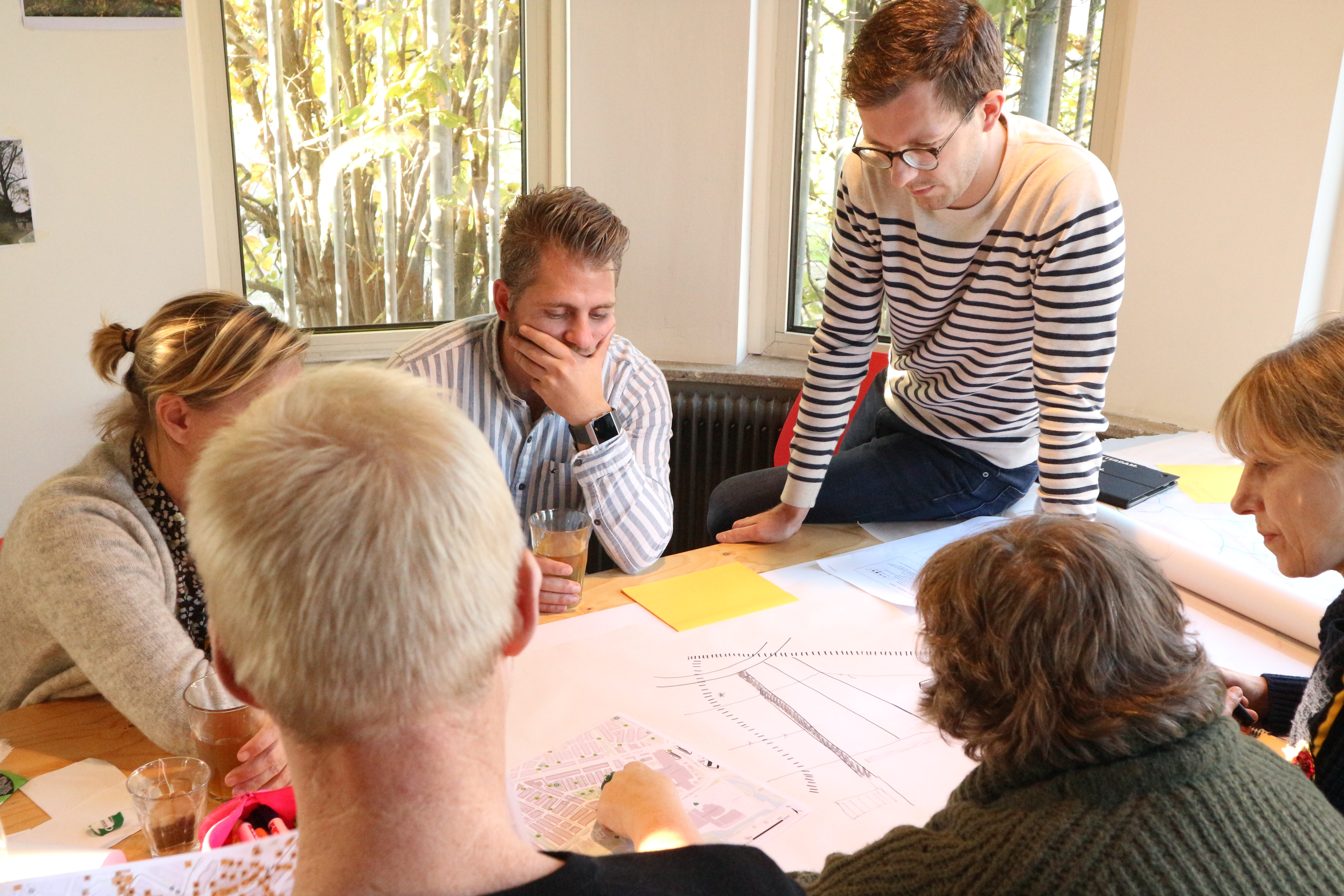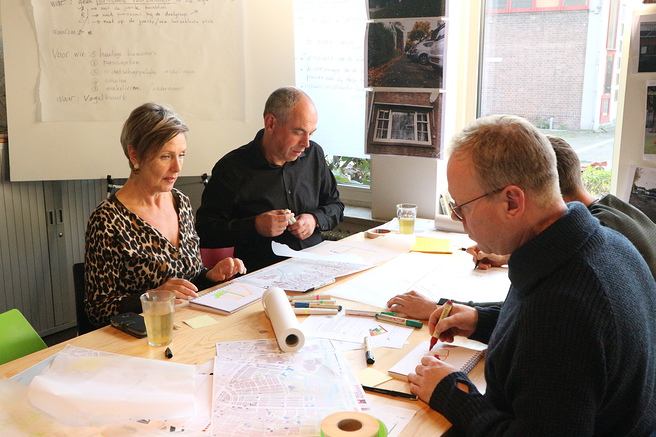There is an ever-growing need in urban development to come up with cohesive strategies. But what does the planning process look like when experts from different domains work together to form integral development strategies and which competences are needed for this? To support and stimulate integral planning processes, Veldacademie and the Institute for Housing and Urban Development Studies (IHS) joined forces and are developing a practice focused training programme. The first participants started this year at the municipality of Rotterdam. The training will continue next year with even more participants.
During the training broad social themes in connection with ‘physical’ urban development play a central role. For example, these are loneliness, welfare, health, education policy, employment and urban poverty. Addressing these themes in connection to spatial planning on the level of the neighborhood demands a multidisciplinary and integral approach. One that take into account knowledge and experiences of all policymakers from all domains.
Learning objectives
The aim of the training is that participants recognize the interactions between urban planning and social development and that these can be addressed in a multidisciplinary team by means of future scenarios and strategies. Next to this, participants learn what (in the interest of) spatial quality is in relations to future developments.
Structure of the training
The training is based on the method of research by design. We work in an iterative process on integral problem analysis (network analysis included), visions and scenarios for the future and (input for) strategies around the task. This cycle of designing consists of three building blocks (analysis, vision and ideas, strategy) and a continuous working principle (stakeholder engagement & learning). The design cycle in this course has been cut into two blocks with a short interval.
“The balance between working in practice and working with theory is organized very well. Really working together towards an end result. What we found out in such a short time surprised me.”
Practical applicability
The training is focused on practical applicability in the working environment. We alternate between a short introduction from theory to workshops where we apply several hands-on methods of analysis and research. During the course we deal with themes that were agreed upon in advance (formulated based on the intake forms) and we work on several levels in a specified area.
Participants are divided into interdisciplinary teams and each team works with several comparable tools and complementary methods. The learning process focuses on, on the one hand, learning how to apply different methods and tools, and, on the other hand, on learning from interaction and shared reflection with participants from different disciplines.
The teams gradually work towards a product which will be further developed during the training so that at the end of the training the process from problem analysis until strategy has been gone through and we can end with a collective presentation of the end product.

“The composition of the group really appealed to me. Most of the time when you work on a project you work with one specific group of people. Now it was much broader and you worked with people who have ‘different glasses,’ which is an enrichment for everyone.”
Time investment and conditions
We offer the training for two blocks of 3,5 days. To make use of the time as optimally as possible the participants will get individual and/or collective homework exercises.
Since the training is addressing working in multidisciplinary teams it is important that the composition of participants be diverse. This is why we maintain a selection based on discipline and personal learning objectives.
“Thinking interdisciplinary in this way about area problems is interesting. How can you use this in everyday practice? I would like to explore how you can create such a climate.”
